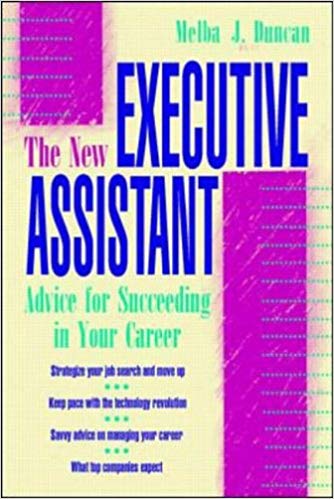Please log in to continue
Melba J. Duncan
Leadership Intelligence Expert
Leadership Intelligence Expert
Melba J. Duncan is the Founder and President of The Duncan Group, Inc., a retained search and consulting firm. Since 1985, the firm has been advising CEOs and other corporate leaders regarding specialized senior management support resources. The firm operates internationally and offers expertise in four practice areas: recruitment, organizational consulting, coaching and executive-level training for administrative staff, with a focus on C-suite strategic executive management assistants.
Melba is also the Founder and CEO of the Duncan Leadership Institute, which offers a targeted curriculum solution for multiple tiers of administrative support staff. She has also authored numerous articles, including the now classic, “The Case for Executive Assistants,” featured in the May 2011 Issue of the Harvard Business Review (HBR), and interview “What Executive Assistants Know About Managing Up” was published in the Harvard Business Review in 2014.
A highly sought-after public speaker, Melba travels globally to address diverse audiences with a focus on the professional executive assistant as an acknowledged strategic business partner, with management, leadership and strategic support skills as the foundation for this transformed role, on the path to Chief of Staff. She conducts extensive workshops worldwide on leadership and management for the professional executive assistant.
An active participant in her field, Melba is member of The Seraphic Society and a Vice President of C-Suite Executive Support Professionals (C-SESP), a not-for-profit global organization that distinguishes the role of the C-suite executive support professional as a strategic business partner.
-
Interview: Post-Covid Insights, The New World of Work and Futureproofing the Role of the Assistant with Lucy Brazier OBE
Melba Duncan and Lucy Brazier OBE deliver a jam-packed interview session, where they share their insights and expertise on the administrative profession once again.
Melba and Lucy discuss new trends in the profession, dive into the Chief of Staff role and the importance of truly understanding what a Chief of Staff is, and they also share impressions and experiences on the new world of work from the last three years post-Covid.
Learning Outcomes
In this session, you will :
- Gain a thorough understanding of the Chief of Staff role
- Learn why Assistants are leaders
- Discover the skills required in the hybrid work world
This session is available on demand in our Learning Library
-
The Three Principles of Universal Indispensability
There is no single agreed-upon description of what the Executive Assistant’s role entails, or even what the title should be. The position is structurally, strategically, socially, and politically unique, and extraordinarily situational. Today’s business leaders are faced with a changing work environment, where technological growth and competitive world events are affecting business strategies. This marks an important new stage of challenge and opportunity in the evolution and professionalization of the role of the Executive Assistant: how you understand your role is the imperative.
This is the opportunity for Executive Assistants who exemplify strategic insights and who take on the challenge of intellectual innovation, to pursue a credible career path: that of Chief of Staff. The Chief of Staff role facilitates the executive’s vision while enabling other members of the leadership team to work together effectively to identify and achieve company goals. What better way to increase the odds that the newly appointed Chief of Staff will be successful in the role than by filling this role with the individual who has already proven that they know how to get things done within the organization, has relationships with internal and external stakeholders, understands the company, is a cultural fit, and has a proven track record of effectiveness in translating the executive’s intent into action?
Learning Outcomes
- You are not tyrannized by the urgent
- You manage for strategic effectiveness
- You plan for and manage your own development
-
Management, Leadership and Innovation: The Indispensable Role of Executive Support
When Melba Duncan speaks, you can hear a pin drop. Why? Because she is the only leader in the Administrative sector to have the ear of America’s CEOs and she uses her voice to explain to them how best to use their Assistants.
Simply put, she understands and is eloquently vocal about why the best Executive Assistants are indispensable. The tech world will never develop software that can calm a hysterical sales manager, avert a crisis by redrafting a poorly worded email, smooth a customer’s ruffled feathers, and solve a looming HR issue—all within a single hour, and all without interrupting the manager to whom such problems might otherwise have proven a distraction.
Executive Assistants give companies and managers a human face. In Melba’s only Australian appearance this year, join her as she explains how after years of cutting back, companies can boost productivity by arming more managers with this kind of help—and executives who are fortunate enough to have a skilled Assistant can benefit by finding ways to delegate higher-level work to him or her.
Executive–Assistant relationships are business partnerships: Strong ones are win-wins between smart people. In fact, they’re win-win- wins because ultimately the companies reap the benefits. We guarantee that you will leave this session understanding how vital your role is to business and why the role of the EA is truly one of indispensability.



 The New Executive Assistant: Advice for Succeeding in Your Career
The New Executive Assistant: Advice for Succeeding in Your Career